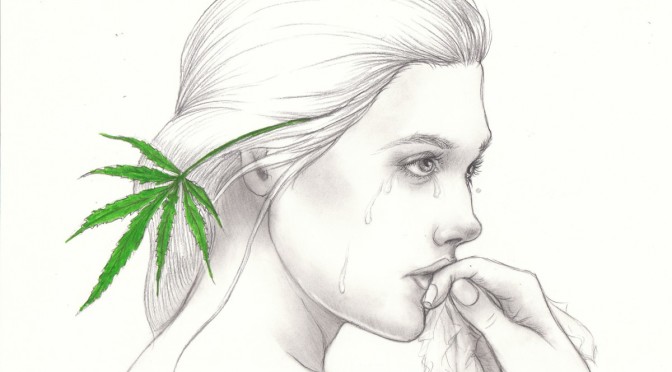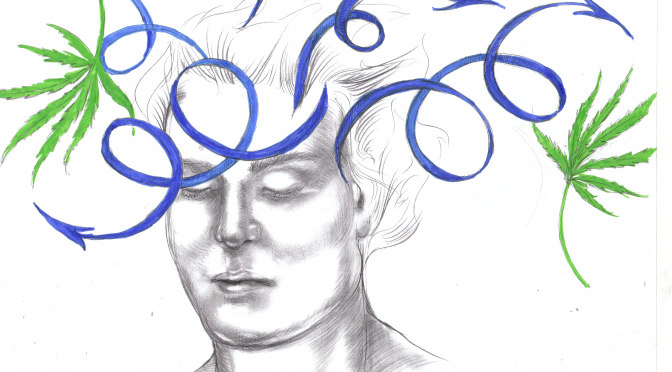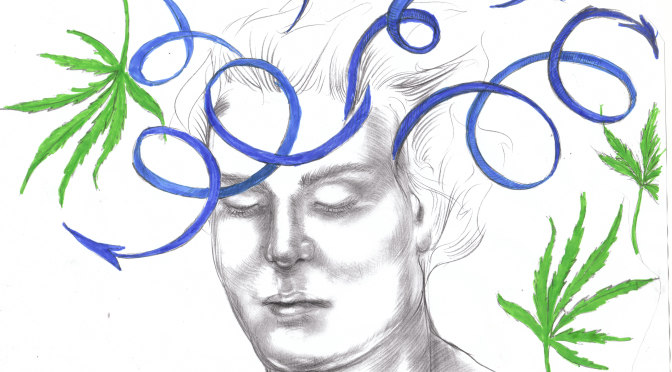Part 1 (We’ve divided this blog into 2 parts) Any psychiatrist who dismisses the effect of drugs on your child’s condition — when there are illicit drugs, marijuana, or legal drugs obtained illegally — should probably be dismissed. Insurance companies aren’t qualified to make this decision. If you don’t want your child set on a track of permanent psychiatric treatment or condition, it’s wise to find a psychiatrist who is Board Certified in Addiction Psychiatry and Addiction Treatment. Continue reading Mental Health Care Fails at Addiction Treatment, Part 2
Tag Archives: psychiatrists
The Unraveling of Ryan, Part 4: The Role of Pot
Part 1, Part 2 and Part 3 by Anonymous. Permission required to reprint.
Everyone young and old gravitated to my son….always. For a young man who was such a happy-go-lucky personality, so charismatic, death came shockingly, seven months after the second psychiatric hospital in Pasadena had dumped him. After 34 months, just recently I finished making Ryan’s marker so his ashes can be placed in the urn soon. I just couldn’t do it before now.
Despite coming out of a second “episode” of psychosis, some of Ryan’s friends pulled away. He lost his job as a Certified Residential Electrician and his wife didn’t return. Thankfully Ryan never showed violence towards any of us. It’s not to say there weren’t scary times during his two “episodes” that lasted about 10 weeks .
With the blessings from two psychologists working with our family, Ryan moved to our family cabin, near Yosemite, after staying with us for three months. The place that had been special to him from childhood. He begged us to let him move there “to start anew,” after all the adversity had hit him. Ryan brought his beloved dog and had access to our ski boat which he loved. He learned to kayak there:-)
The Cabin in Yosemite
We stipulated that he must join AA, have healthy habits and stay in touch with the psychologist. My husband drove up 5 hours each way almost every weekend, so Ryan wouldn’t be alone. We were with Ryan on New Year’s weekend, 2011, as I did not want him to be alone on his first New Years without his wife and all their friends. We played 2 1/2 hours of Ford Monopoly by flashlight in our cabin when the electricity went out. It was like old times, when the boys were little and we played board games each summer at our cabin. When the lights went on just after midnight, New Year’s (2012) my husband took a picture of me and Ryan playing this game. His cute smile had returned! We left on New Year’s Day with Ryan waving to us. I told my husband what a great year, 2012, was going to be. Our son was back, and we were so blessed.
Ed was not able to drive to the cabin that first weekend in January. I asked Ryan to drive home that weekend since I didn’t want him alone for so many days. He said “no.” Since we had just seen him, I wasn’t overly concerned. Ryan had been living there since August. But on Friday, January 13, 2012, I had the most horrific feeling about 10:00 a.m. — a feeling I’ve never had in my life before. Ryan had known his father was coming for a visit that night. I tried calling him, but no response. I texted and called again, still no response. Ryan would always return my calls or text me, “I am here in AA- will call when my meeting is over.”
I left work and told my husband I’d drive up ahead, but he joined me on route. It was a long 5 hours to get there, but every hour our son did not call I knew. Ryan left a note to “DAD”on the outside of the cabin. The lights were off as we entered the cabin. Ed was reading the “good-bye note” when I ran downstairs to find my boy. Nothing in life can prepare a parent for finding their own child’s body. The consequences of suicide are not just that one person is dead; it’s a tragedy of epic proportions for the people left behind.
Our family prides itself having long lifespans. My parents are thriving in their late 80s; Ed’s parents lived into their 80s, but my father-in-law was facing a terminal health condition in 1999 and tragically took his life. We have such longevity in the family, so Ryan’s youthful suicide just doesn’t make sense. I will always believe marijuana started his life unraveling. His first episode was in Oct ’09 and his second episode was May ’11. There was a total of 27 months from start until his unfathomable death at age 25 years old.
The toxicology report was negative (-) for THC upon his death. He had stayed away from marijuana for seven months, as he told us. Ryan never touched any substance again, and stayed in AA, as he told us. There were NO signs of psychosis again. I’ve read that the highest point of suicide risk for cannabis cessation is 6 months from cessation. Ryan was 7 months from cessation when he died.
The Role of Pot in Replacing Anandamide
Brain anatomy is altered by marijuana use and cessation of use. No way my son would have taken his life without the chemical alteration to his brain.
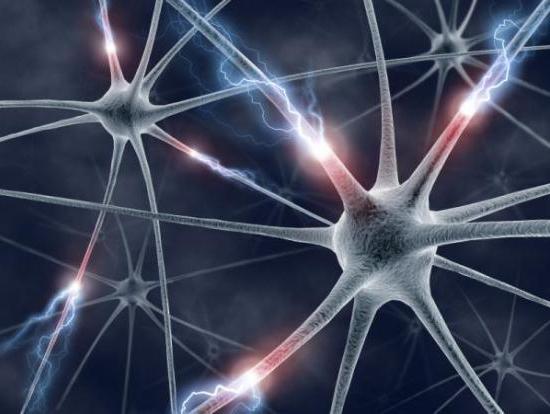
Marijuana and any drug usage skews brain chemistry and messes with the neurotransmitters (substances that allow various functions between the brain and body turned on and off). Anandamide is the endogenous cannabinoid neurotransmitter. Over time with marijuana use, THC displaces anandamide, and the body may not start producing it again for weeks to many months after quitting marijuana. Irritability, anxiety, depression, nervousness, restlessness, insomnia and and suicide are symptoms of marijuana withdrawal.
Other neurotransmitters could be involved, too, and I hope experts in time come to explain why young people who use marijuana are so much likely to commit suicide. The chemical imbalance Ryan had acquired was compounded by losing his job, his wife and friends. Had he not stayed isolated and supported himself with exercise and massage therapy, as he did before moving to the cabin, would he have gotten past whatever feelings he wrestled with at the end?
Were we wrong to not want him on an anti-depressant, after the anti-psychotics has such horrible effects? Ryan was too phobic of taking any medication again after the massive drugging he received twice during each hospitalization.
I absolutely believe knowing what I know now but didn’t then, I could have saved my son. For every person informed of the knowledge that marijuana can cause psychosis, I will consider Ryan’s life not taken in vain. Ryan’s good-bye note indicates he realized the consequences of using pot.
Sadly, anyone in the throes of a severe emotional crisis, like psychosis, is considered mentally ill, versus someone in the throes of a heroin crisis who is physiologically ill and needs addiction drug rehab. Psych hospitals and psychiatrists need to acknowledge to patients and families that psychosis is often temporary, while addiction programs need to warn/educate about psychosis that comes with substance abuse.
I hold today’s “skunk” cannabis responsible for what it did to Ryan’s mind, but I hold the mental health industry responsible for their ignorance and callous lack of regard for human beings who come into their system.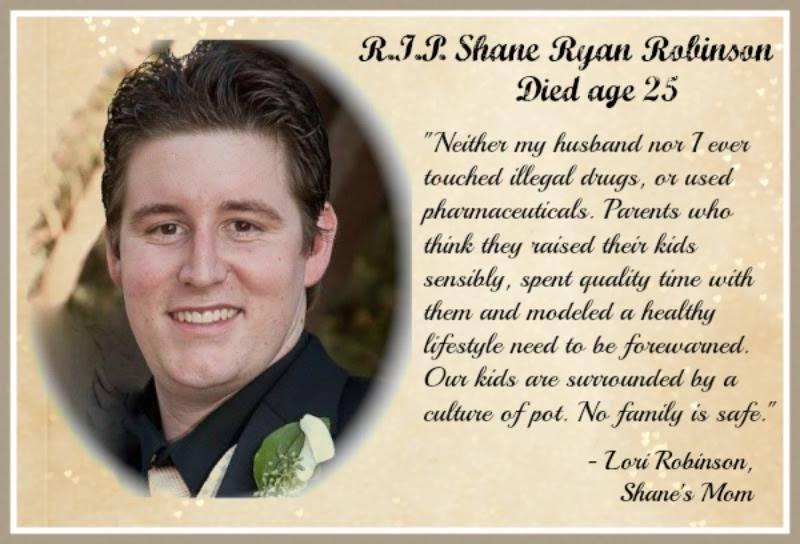
I’m moving to make peace that Ryan (Shane) lived life to his fullest for the short time he was with us (minus the two episodes). That’s how I’m trying to direct my thinking while trying to spare other families this kind of epic tragedy. (In Part 5, and in the Postscript, the author explains how she has armed others with the knowledge to prevent more cannabis casualties.)
The Unraveling, Part 3: Temporary Mental Instability vs Bipolar I
(Read Part 1 and Part 2. Permission required for reprinting) After Ryan’s death, I remembered reading many years ago in a magazine about Margaret Trudeau, then wife of the Canadian Prime Minister Pierre Trudeau. She was in her 20s, partied with socialites, and also suffered psychotic breaks. Each time she referenced her use of marijuana as the trigger for those episodes. I’ve since read current articles, and she continues to share. For her, marijuana led her into “madness.” It was much later that she was diagnosed with bipolar disorder. It’s hard for me to accept her son, Justin Trudeau, wanting to have the same position his father held. He’s a proponent of pot, despite knowing his mother’s mental health was so affected by marijuana. It speaks volumes on how great the opposition to promoting the truth about this drug!
Ryan was not helped to understand why his brain lost touch with reality under the influence of THC–this is the “elephant in the room.” The fact that hospitals don’t consider marijuana a factor in the picture of mental health is a tragedy. We need every researcher, past and present, across the globe, who understands the truth about what pot does to young brains to stand up in solidarity.
The experience of Great Britain was that it decriminalized marijuana, saw a spike in mental illness as a result of loosening the law, and then tightened their laws again. Canada has website on the cannabis-psychosis-schizophrenia link. The US, on the other hand, is not noticing its problem, or influenced by the marijuana financiers, is refusing to see that so many young people who are addicted to it are also having psychiatric problems. I believe the psychiatry community has failed to connect the dots, ignoring the facts of today’s cannabis – so much stronger than when they were in school, or even 10 years ago.
The Lancet Journal of Psychiatry’s recent article points to a sevenfold risk of suicide for teens who use marijuana.
The second break happened 18 months after the first one, but this time I pre-arranged for Ryan to receive drug rehabilitation at a different hospital. The hospital in Pasadena gave the ‘green light’ for rehab. We paid $12,500 up front and Ryan’s PPO would insure the rest. His uncle and grandfather came, too, for support. Less than 24 hours after admittance, the staff coerced Ryan to their locked unit, where he was warehoused for 13 days with anti-psychotics exceeding the FDA limits.
The staff asked us several times: “Could Ryan have dropped acid? He doesn’t seem like our bipolar patients.” Once again his toxicology report came up positive (+) for THC. Again, in 2011, just like 2009, no one believed marijuana could cause this effect.
By now, we realized that our son’s drug problem was with weed and that he had relapsed with weed, but he never got a shot at the drug rehab for which we had already paid.
Ryan was “dumped” from their unit on the 13th day. The insurance refused to pay for it, perhaps after reading the notes of how much worse Ryan had become inside the hospital unit. Why are insurance companies allowed to have so much influence on a patient’s treatment when they don’t have expertise? He was drugged mercilessly into just a state of stupor. It was an endless nightmare for our son and for his family.
Ryan was taken off the last anti-psychotic at the first follow-up visit with the same psychiatrist because he appeared normal, compared to his state during hospitalization. However, he was still actively psychotic at that one week follow up. (I had stopped Haldol when he came home, as I was horrified my son had been receiving Haldol round-the-clock. Of course, at 6’4”, Ryan was intimidating. He had never become violent, but he tried to escape several times, realizing he had been tricked from the open unit into the locked unit.)
Coming Home Again
Ryan was hit with a personal betrayal at the same time–which just leveled him. Yet, with love and support of our family, he emerged once again from psychosis 10 weeks later. It came within the same time frame as the first episode, probably not a coincidence. This time it happened without medications, and I am suspicious that the medicines didn’t really affect his state of mind coming off psychosis after the first episode.
Ryan stayed with the Ivy League psychiatrist after coming out of psychosis for several visits. He drove all the way to his office in Pasadena, then had to wait up to 1 1/2 hours, as he piled in patients for the 15-minute check-in. I always hoped Ryan would invite me to go with him, but he didn’t. On the last visit, Ryan came home and announced “Mom, I’m not going back to see him because he never takes his head out of the computer, and doesn’t even look at me.”
After my son died, I subpoenaed his records only to find many days of nursing notes documenting: “Please call my mom she’ll know how to help me.” “I can’t stay in here like the last time, you don’t know what happened to me there.” But no one called me or told me despite my calling twice a day and visits every night.
During the 2nd hospitalization, I believe the massive anti-psychotics administered threw him into full-blown psychosis, as compared to the mild state of psychosis at the time he entered to get drug rehab. Drugging a young person into such a state of stupor, and then stopping medication upon discharge, surely that plays havoc on the young brain – already under siege from the effects of THC.
There are families whose kids died from drug overdoses, but began their drug usage with pot. There are those who have children hopelessly addicted to marijuana and there are those of us whose children die from the consequences of marijuana usage. All of us are stymied by a cover-up of the marijuana-mental illness link, and the fact that mental health treatment doesn’t adequately connect with substance abuse and addiction treatment. Follow our posts by email to receive part 4 and part 5, to be published in December.

